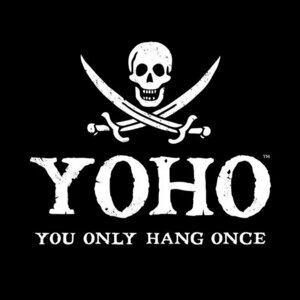
Wolfenstein: Cyberpilot
Video Game
Wolfenstein: Cyberpilot is a VR game, set in the Wolfenstein universe. The game is set 20 years...
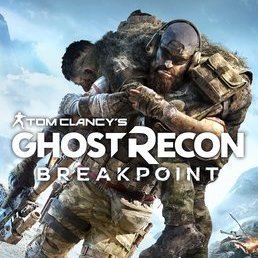
Tom Clancy's Ghost Recon Breakpoint
Video Game
The game is set in an open world environment called Auroa, a fictional island in the Pacific Ocean....
Purple Phoenix Games (2266 KP) rated Space Explorers in Tabletop Games
Jan 4, 2021
Space Explorers is a card drafting, set collection game for two to four players. In it players will take on the mantles of unique Human Resources managers… in space! Well, not IN space, but FOR space. By recruiting the best and brightest engineers, testers, scientists, builders, and astronauts players will score points in addition to scoring points for completing projects.
DISCLAIMER: We were provided a copy of this game for the purposes of this review. This is a retail copy of the game, so what you see in these photos is exactly what would be received in your box. I do not intend to cover every single rule included in the rulebook, but will describe the overall game flow and major rule set so that our readers may get a sense of how the game plays. For more in depth rules, you may purchase a copy online or from your FLGS. -T
To setup, assemble Hub parts tableau organizer for each player. Shuffle the deck of Specialist cards (engineer, tester, et al) to be recruited and reveal six face up to symbolize the Center. Deal each player one of these Specialist cards to create their starting hand. Randomly choose two plus the number of players Project tiles and lay them on the table to be completed throughout the game. Each player will also receive a reference sheet (VERY handy) and one token of each Research type. Determine the starting player and the space race may now begin!
On a player’s turn they have two choices to make: take a Specialist card from the table into their hand, or recruit a Specialist from either their hand or from the table and place in their personal tableau. After this is completed the player may collect one Project tile if they now control the correct number of Specialists per Project tile.
To take a card into hand, a player simply selects one face-up Specialist card from those on the table and places it in hand. Simple.
To recruit a Specialist the player will need to spend Resources equal to the recruitment cost printed on the Specialist card. Resources may be spent in any combination from actual Resource tokens, Resources provided by recruited Specialists already in the player Hub (tableau), and discarding a Specialist card from hand to the table to give two Resources of any type.
As Specialists are recruited to the players’ Hubs they will then give a discount toward recruiting future Specialists of the same type along with other abilities. For each Specialist in the Hub the player will receive a discount of one Resource icon needed to spend to recruit a Specialist of the same type. For example, if a player already has recruited two Scientists, the next Scientist they recruit will be discounted by two Resources. These Resources are discounted from the bottom-up on the listed recruitment cost, and may even result in Specialists being recruited for free. Similarly, some Specialists have certain abilities printed on their card that allow such actions as recruiting cards for free, or providing Resource icons to be used to recruit, or even providing extra points at game end for a variety of reasons.
Play continues in this fashion of players taking Specialists in hand or recruiting them to their Hub to be used to complete Projects and earn points. The game ends once the last Project has been completed or any one player has recruited their 12th Specialist. Every player will have the same number of turns, after which the winner will be the player with the most points!
Components. I have a lot to say about the components here. I think that 25th Century Games has absolutely nailed every single component in this box. The Specialist cards are excellent quality: linen finished, great thickness, and they shuffle realllllly well. The Project tiles, Hub parts, and Resource tokens are thick board stock. The reference sheets are good and the rulebook is just perfect. One thing that may be slightly polarizing is the art style. Space Explorers uses imagery similar to what you would find on many things in the 1950s and 1960s in America. That said, I absolutely love the art style and it is reinforced on every component in this game. The icons are slick and stylish, the color scheme is muted without being drab, and everything you play with is meant to help immerse you into the time of the first astronauts. It’s simply amazingly well done.
The gameplay is also quite stellar (Laura will like that one). I know many compare it to Splendor, and that is certainly warranted, but I feel that Space Explorers pulls it off much more fluidly. Yes, Splendor has those weighty chips that everyone likes while Space Explorers has cardboard tokens. But other than that Space Explorers surpasses the other by leaps and bounds. The gameplay is much more intriguing, the theme is way cooler, and I am just overall much more attracted to it.
While gameplay overall is similar, there is quite a number of differences Space Explorers offers. Foremost, when Resource tokens are spent to recruit Specialists, instead of being sent to a communal bank they are passed along to the player on the left. That’s right, you literally give those Resources to your opponent that will be playing next. This small change really increases the need to be aware of what each player’s strategy may be in order to recruit who you need without also helping your rivals. Being able to utilize three different sources of currency in combination to recruit Specialists is also quite nice. Don’t have the right number of tokens? No problem! Check out what your Specialists are providing from their years of experience.
It is really no shock here that I am enamored with Space Explorers. I really didn’t know that I needed a Splendor killer in my collection, but now that I have this I will be holding it tightly and in high regard. Purple Phoenix Games gives this one an out-of-this-world 11 / 12. If you LIKE the aforementioned game that everyone seems to own but don’t LOVE it, then you need to check out Space Explorers. The theme is great, the components are superb, and the gameplay is light and fast. I love it dearly and hope you do too.
Purple Phoenix Games (2266 KP) rated YOHO (You Only Hang Once) in Tabletop Games
Jan 14, 2021
As mentioned previously, YOHO is a semi-cooperative game of pirate players attempting to find the Treasure and bury it in their safe spaces by the end of the game. Players will be assuming roles of jobs on a pirate ship: Captain, Quartermaster, Bosun, Seadog, and Pariah. These positions have jobs and pirating to do or else they may find themselves walking the plank.
DISCLAIMER: We were provided a copy of this game for the purposes of this review. This is a retail copy of the game, so what you see in these photos is exactly what would be received in your box. I do not intend to cover every single rule included in the rulebook, but will describe the overall game flow and major rule set so that our readers may get a sense of how the game plays. For more in depth rules, you may purchase a copy online or from your FLGS. -T
To setup players will choose their pirate persona and place it in front of them with the Loyal side showing. On the backside is the Rebel side, which will allow the player special abilities later in the game. A Captain is chosen and that player then doles out the remaining ranks of pirate jobs to the other players. Each player will be dealt five cards from the shuffled Blame deck (draw deck) for their starting hands. The top card from the deck is flipped to become the Blame Pile (discards). The Captain takes the Course card and places it Port side up. The game may now begin!
The active player’s turn will be comprised of four steps. The first step is refilling the hand to five cards. Should the player have more than five then no additional cards are drawn. Next the player will choose one card from hand to play to the Blame Pile. The card may not contain the same text as the card below it, so no stacking UNO Draw 2s. Once the card is played to the Blame Pile the active player will carry out the card’s instructions. These could be switching hands with other players, flipping their pirate cards to Rebel or vice versa to Loyal, Demoting pirate ranks, or one of the other four actions printed on the cards. Finally the active player passes the Course card to the next player to take their turn.
While this all seems typical of many card games, YOHO forks from the common by employing a Blame mechanic. One of the aforementioned other actions on cards is the Accuse action. When one player accuses another the Blame Pile is consulted, and whichever pirate’s rank number matches the highest sum of the matching rank number of cards in the Blame will take the entirety of the Blame Pile into their hand. For example, if the Bosun (3) accuses the Seadog (2) then the Blame Pile is sifted through in order to see how many cards match the 2 and 3 of the ranks involved. Add up the totals of these cards to arrive at the rank’s Blame. The larger number receives the Blame. Special rules are provided for when the Captain is both involved in an accusation and also when the Captain is forced to take the Blame.
The game ends once a pirate draws the last card from the Blame (draw) deck. Players will total their matching Blame in their hands, adjust this number if the player holds the Treasure card or if the pirate is Loyal vs. Rebel according to the Course card’s current display. The player with the most Blame will walk the plank and lose immediately. With a few other scoring rules the player still on board with the highest rank wins!
Components. This game is a deck of cards in a tuckbox. The cards are all fine quality with linen finish (the best finish methinks). The art is somewhat cartoony, but still enjoyable and not offensive at all. I don’t have any problems with the components in YOHO.
My first game of YOHO was played between my wife and I and it was a disaster. I strongly suggest playing with three or four, with four giving the best experience. When the full compliment is used there is only one “inactive” pirate who sits in the middle of the table holding onto their rank and not really doing anything. A ghost player, if you will. However, with two players there are three ghost players not doing anything. It just didn’t work with us AT ALL. But four players was quite enjoyable and actually saved this one for me.
I like the gameplay here. It is different and quirky, and I like that. The constantly-shifting ranks and demotions left and right makes players wish for promotions, but those only come as demotions to a higher rank. Also being able to accuse other players caters to the card counters in the group because they can be watching which cards are played to the Blame Pile and know exactly which rank has more cards represented. While that is dependent on the type of players involved, I have not found that to be a problem. I also really like the shifting Course card. When on Port all pirates can do their jobs, but as soon as it flips to Starboard the Rebel pirates may NOT complete their jobs. This is such an interesting way to utilize the active player token instead of just noting which player’s turn it is currently.
Again, I do NOT recommend playing with two, but definitely do recommend with four. I would be hesitant at three, but it can certainly work. Purple Phoenix Games gives this one a wishy-washy-swashbuckling 8 / 12. If your collection is missing another pirate card game that can be played quickly, has interesting twists, and fresh-feeling mechanics, give YOHO a try. You might finally have the chance to send your rival off the plank. But be warned, despite the title, there is no hanging in YOHO (You Only Hang Once).

My Video Manager and Filetransfer
Photo & Video
App
Easy to video viewer and local video transfer My Video Viewer is for download local network from...

Play Football Match 2017- Real Soccer world Stars
Games and Entertainment
App
Football 2017 fever is high. Do you love football? Download this game and practice your skills. Play...
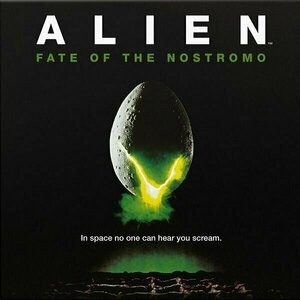
Alien: Fate of the Nostromo
Tabletop Game
In ALIEN: Fate of the Nostromo, players take the role of Nostromo crew members Ripley, Lambert,...
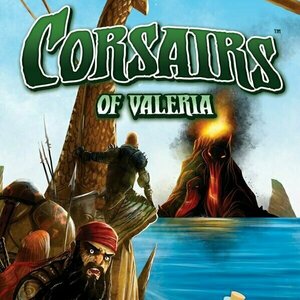
Corsairs of Valeria
Tabletop Game
With the current Commodore lost at sea, you and your fellow Corsairs have set out to complete the...

memory® – The Original from Ravensburger
Games and Entertainment
App
Original memory® - THE classic from Ravensburger. The app offers four different sets of cards and...
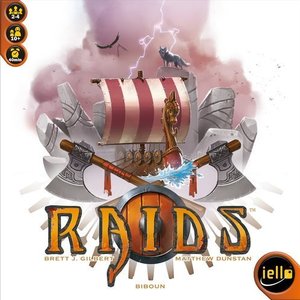
Raids
Tabletop Game
In Raids, players sail from island to island to collect vikings and viking-related paraphernalia,...
Boardgames VikingGames 2018Games

